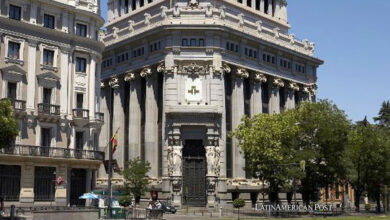A bright, new future for Ecuador
Listen this article
Today, Lenín Moreno became the new president of Ecuador. The last few weeks –seven, to be exact– have been full of assumptions about the policies and plans that will characterize his presidency. While there’s still much to say about Moreno’s plans, his first statements as president show a promising and realistic future for Ecuadorians.
Rafael Correa led Ecuador for 10 years, from 2007 to 2017, and, running on oil’s high prices, was able to reduce poverty and increase investments on infrastructure and public services. In spite of his ideological tendencies, people were happy during his tenure and the numbers backed him up. According to a report published by The Economist, “poverty rate fell from 40% in 2006 to 23% last year”. Correa made sure of increasing his popularity through measures that improved quality of life and by implementing the communications law; it prevented the media from expressing ideas that dissented from those of the government–.
Moreno’s first statements were much more measured than Correa’s. First, he eliminated the weekly meetings that the president had with communities all across Ecuador. This could hurt his popularity and some may read it as a way of distancing himself from criticisms, but it also appears to be a decision based on austerity. Each weekly meeting had a cost of approximately US$30,000. Moreno could be trying to imprint his concern for budget cuts by taking this rather unpopular decision.
However, after declaring the elimination of weekly town meetings, Moreno said that he would try to rebuild the relationship between the government and the media. His intentions were clear when he stated, "there can be no dialogue without freedom of speech". He’s certainly trying to distance himself from Correa’s approach towards news outlets. At the same time, this decision could get him closer to other parties that doubted the transparency of his election.
From now on, Moreno stated, "all expenditure, all investment, will pass through a filter of citizen needs". Clearly, he’s trying to pursue the stability that Correa’s presidency put at risk. Despite the popularity of Correa and the improvement in overall quality of life, the drop in oil prices that occurred in the last two years left the country in serious fiscal deficit.
If Lenín Moreno’s inaugural speech at the National Assembly is a sign of what’s to come, people can rest assure that he won’t be trying to mimic Rafael Correa.
LatinAmerican Post | Juan Sebastian Torres
Copy edited by Susana Cicchetto





